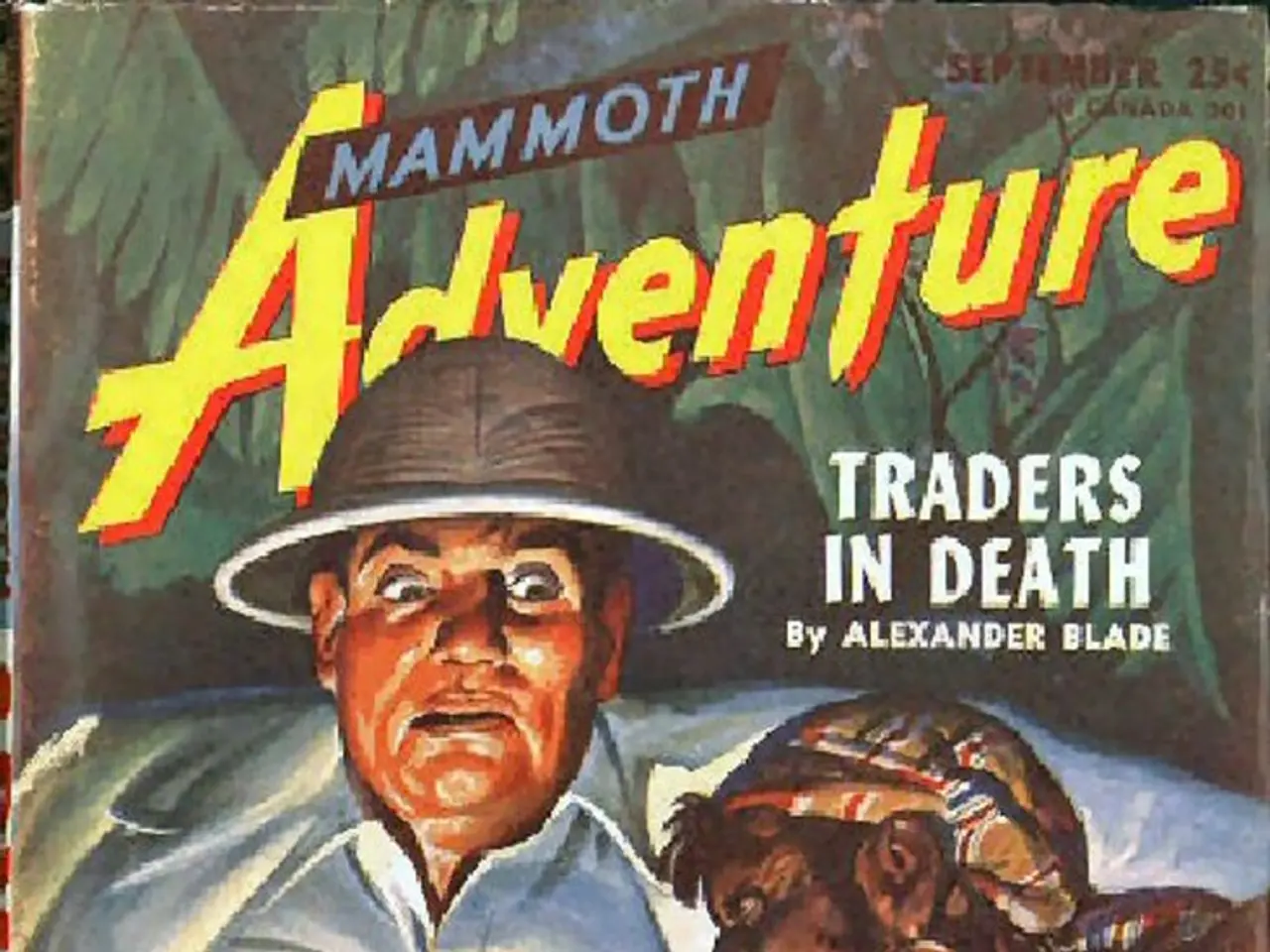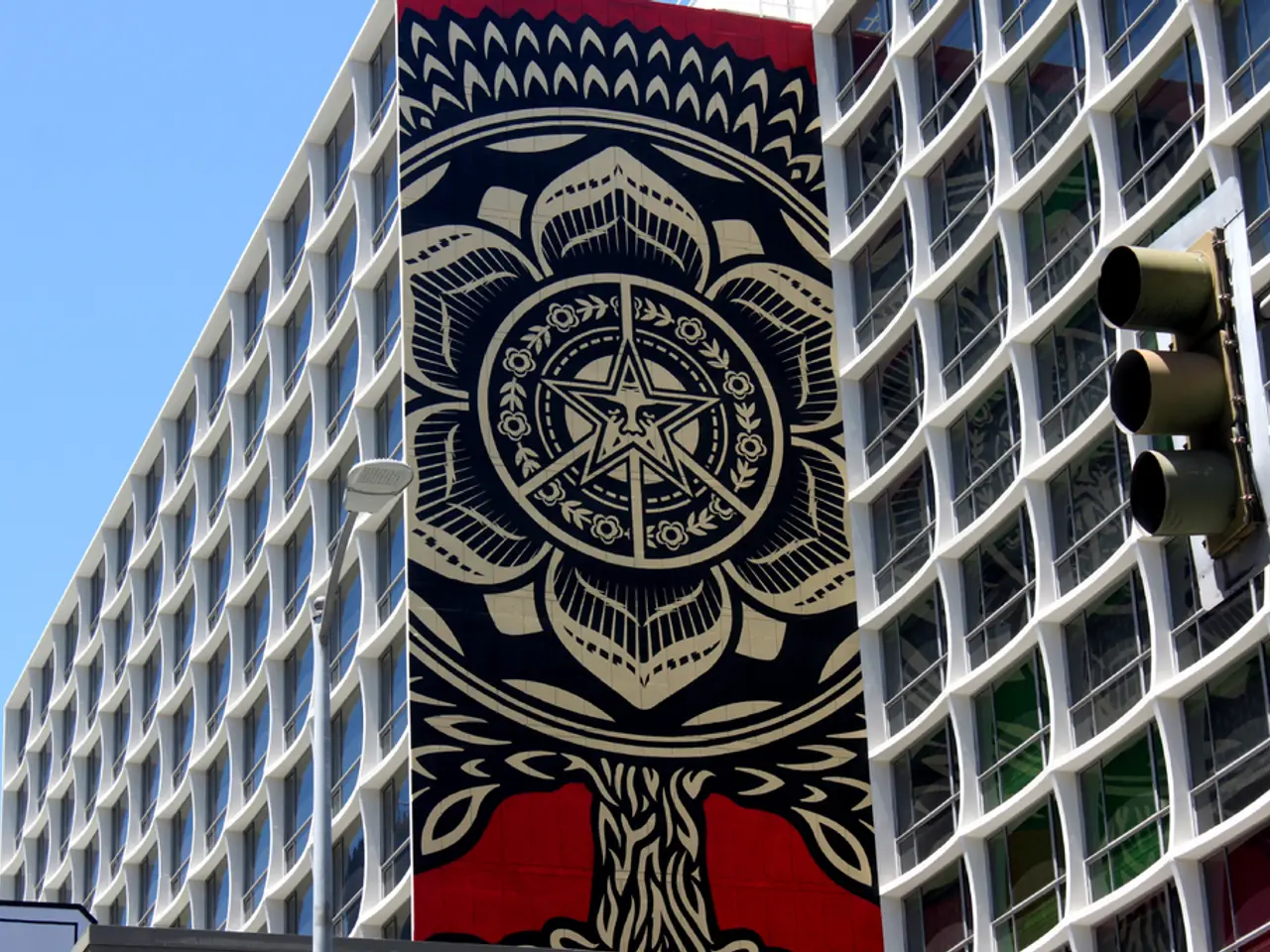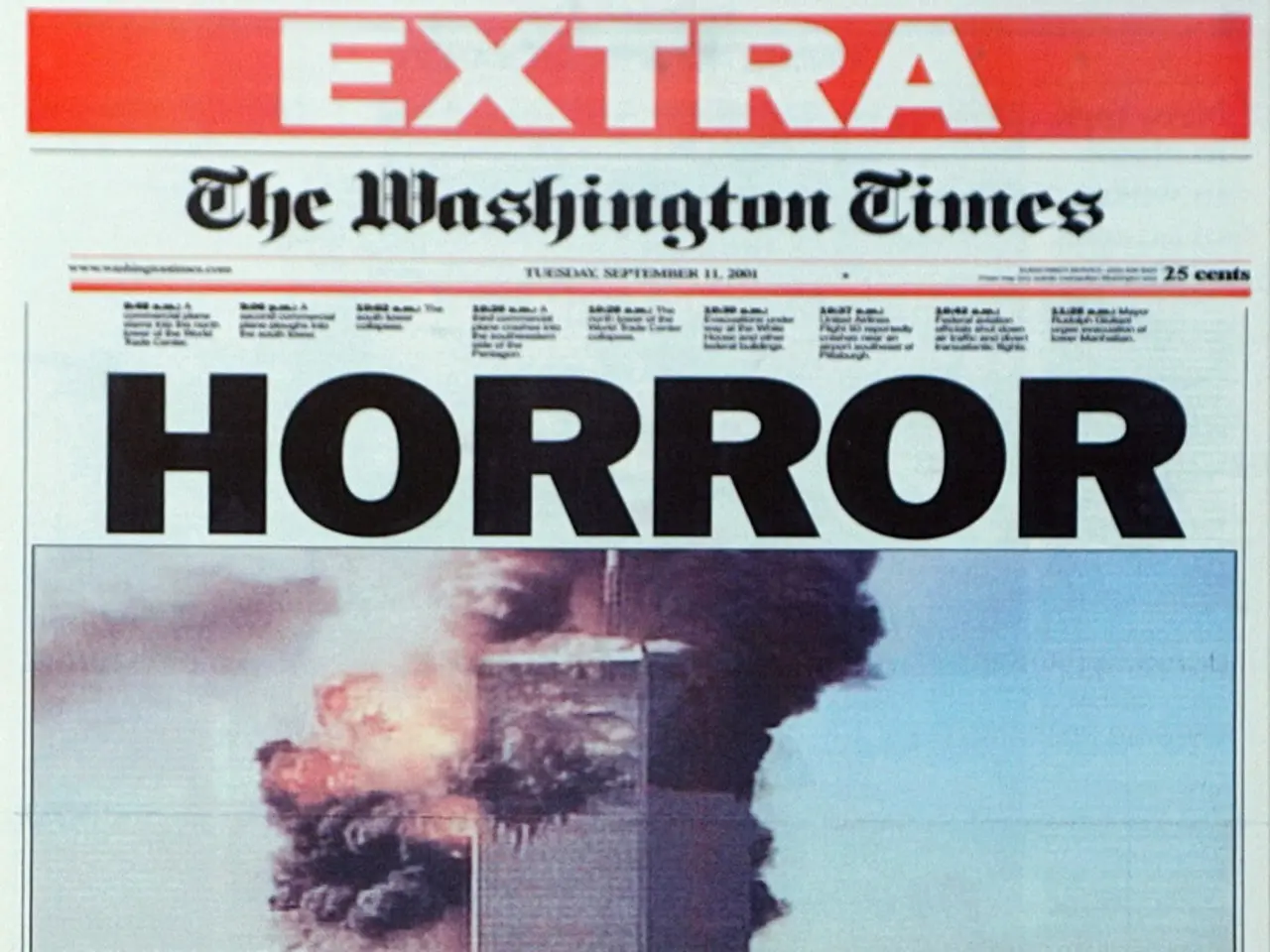DHS accused of utilizing a Thomas Kinkade painting to fuel division and xenophobia, according to the Thomas Kinkade Foundation.
In a recent development, the Thomas Kinkade Family Foundation has accused the Department of Homeland Security (DHS) of copyright infringement for using one of Thomas Kinkade's paintings, "Morning Pledge," without authorization.
"Morning Pledge," a painting that typically evokes a distinctly American spirit, depicts two children walking to school and other students gathering around a flagpole to raise the American flag. DHS used this painting on their social media platforms with the caption "Protect the Homeland," a move that the family found unauthorized and associated Kinkade’s legacy with a message of xenophobia that they strongly condemn.
The foundation has requested DHS to remove the post and is consulting legal counsel on possible action. In response, a DHS spokesperson said that the administration is unapologetically proud of American history and American heritage.
This is not the first time DHS has received pushback for using artwork in their social media posts without permission. Earlier this month, artist Morgan Weistling complained about DHS's usage of his painting, "New Life in A New Land," without his permission and accused DHS of violating his copyright.
Thomas Kinkade saw the United States as a beacon of hope for the world, offering fundamental justice and dignity for all. This belief is reflected in the Thomas Kinkade Studios' description of "Morning Pledge" as a painting that reflects Thomas Kinkade's belief in the United States as a beacon of hope and a promise of fundamental justice and dignity for all.
Interestingly, the Thomas Kinkade Family Foundation is separate from Thomas Kinkade Studios, which sells prints of the late artist's work.
California Governor Gavin Newsom suggested that DHS failed to understand the true meaning of John Gast's painting, "American Progress," which DHS also posted without permission from the Autry Museum of the American West in Los Angeles. The painting, created in 1872, heavily features Native American history and intentionally embraces a more honest, inclusive understanding of Western history.
In conclusion, the Thomas Kinkade Family Foundation's accusation of copyright infringement by DHS has brought to light the importance of respecting artists' rights and understanding the true meaning behind the art used in public platforms. The foundation strongly condemns the usage of "Morning Pledge" by DHS and finds it antithetical to their mission.
[1] Article about Morgan Weistling's complaint [2] Official statement from the Thomas Kinkade Family Foundation
[1] Artist Morgan Weistling, like the Thomas Kinkade Family Foundation, has recently accused the Department of Homeland Security (DHS) of copyright infringement, stating that DHS used his painting, "New Life in A New Land," without permission.
[2] In a statement, the Thomas Kinkade Family Foundation strongly condemns the usage of "Morning Pledge" by DHS, associating Kinkade's legacy with a message of xenophobia. The foundation demands that DHS remove the post and is consulting legal counsel on possible action.
[3] Artworks, such as "Morning Pledge" and "New Life in A New Land," are more than just paintings; they are symbols that reflect the beliefs, values, and identity of the artists. Their misuse or unauthorized usage can lead to misinterpretations and harmful associations.
[4] The controversy surrounding the use of artworks by DHS in their social media posts highlights the need for a better understanding of the role of art in society and the importance of respecting artists' rights. Policy-and-legislation and politicians should take this into account when formulating war-and-conflicts, crime-and-justice, general-news, and other policies related to the use of art in public platforms.







